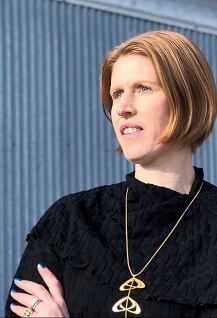The UN Women’s Empowerment Principles (launched in 2010) are a joint project of the UN Global Compact and UN Women and were developed to “emphasize the business case for corporate action to promote gender equality and women's empowerment,” according to the UN site.
Last week’s WEPs Forum “[looked] to the future and [considered] how the WEPs can help business, investors, governments, and other stakeholders navigate new opportunities and work collectively to ensure that women help define and benefit from opportunities in the future of work.”
Speakers at the forum included UN leaders such as Phumzile Mlambo-Ngucka, United Nations under-secretary-general and executive director of UN Women, and Lise Kingo, CEO and executive director of the UN Global Compact; as well as investment sector entrepreneurs like Suzanne Biegel of Catalyst at Large and Sarah Chen of The Billion Dollar Fund for Women. And beauty executives from both Mary Kay and L’Oreal spoke during the forum too.
Mary Kay has always empowered women
In her remarks at the forum, Deborah Gibbins, chief operating officer at Mary Kay, emphasized that for the beauty maker “empowerment and entrepreneurship are synonymous.” She noted that 50% of the May Kay executive team is women, a figure that includes not only Gibbins herself but also the company’s chief scientific officer (a note that resonated with forum attendees who heard about the importance of women in STEM careers from other speakers).
Gibbins outlined how Mary Kay approaches women’s empowerment worldwide and not just for working-age women but for girls as well, fostering digital literacy and access to capital. She observed that when Mary Kay the woman founded her company in 1963, she did so to ensure that “thinking like a woman was an asset not an insult.” And Gibbins closed her remarks saying, “thinking like a woman can be a tremendous advantage.”
The above video, featuring Gibbins (center), Riefaqah Jappie, ITC Representative to the UN International Trade Centre (left), and Anna Falth, WEPs policy advisor and programme manager for We Empower (right), was filmed at a reception following the 2019 WEPs Forum at the UN.
WEPs is open to brands big and small
To date over 2,000 business leaders have signed the WEPs, actively pledging to work towards and publically report on gender equality initiatives. And even without signing on, brands and companies have free access to the WEPs gender-gap analysis tool.
Initially the Women’s Empowerment Principles program was open only to brands with 10 or more employees, Falth tells Cosmetics Design. But like many ventures that serve, support, and otherwise intersect with the beauty industry, the WEPs program sees the importance of startups and small business.
Falth says the group recognized that “Women want to drive business from their feminist values and [toward] gender equality.” So, now any sized business can sign up. She notes that every business that wants to sign on to the WEPs will be screened for due diligence but that a verifiable online presence is often sufficient.
Learn more about the Women’s Empowerment Principles here. And, click here to sign the WEPs.
---

Deanna Utroske, CosmeticsDesign.com Editor, covers beauty business news in the Americas region and publishes the weekly Indie Beauty Profile column, showcasing the inspiring work of entrepreneurs and innovative brands.
